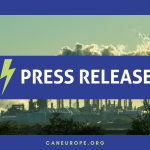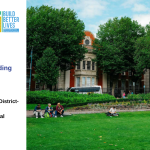Climate action needs to be enshrined in the global fight against poverty and inequality. but the Financing for Development Conference in Addis Ababa failed to build strong momentum towards fossil fuel-free economies and climate resilience, argues Maeve McLynn.
This Op-Ed was published on Euractiv.com on 17.7.2015
By Maeve McLynn, Climate and Development Policy Coordinator at Climate Action Network Europe
Since the start of this century, the world began to make great strides to tackle poverty and inequality through the Millennium Development Goals. Over one billion people were lifted out of poverty, access to food and nutrition increased dramatically, and over two billion more people gained access to improved drinking water.
However, the world also began to experience the devastation that climate change and environmental degradation can wreck on the very people who are most in need. Climate related disasters such as Hurricane Katrina, Cyclone Pam and Typhoon Haiyan have exposed the sheer vulnerability of the same communities that are struggling to meet the sustainable development needs of their people. In short, the great strides made in global development over the last fifteen years risk being severely shortened by climate change.
The global framework for Financing for Development (FfD) has acknowledged this growing threat that climate change poses to sustainable development. Development as we know it is no longer just about economic growth and social well-being.
First convened in 2002, FfD set out to establish clear strategies for financing the outcomes of numerous global summits such as the Rio de Janeiro Earth Summit in 1992. It aims to promote poverty eradication, economic growth and sustainable development. With that over-arching aim, key aspects related to our financial system are addressed in FfD; from the delivery of aid to developing countries, to addressing public debt and tax, as well as the use of trade and the private sector to promote sustainable development.
The costs for climate change are already there
As the FfD process has advanced into 2015, it has entered a phase where our awareness and political consensus on climate change must be used as a compass for our future actions in sustainable development. In 2015 we are acutely aware of the growing costs of climate change. One of many examples is the recent UNEP Adaptation Gap report. It makes conservative estimates that adaptation actions will require between $70bn and $100bn a year by 2050. And that’s if we manage to keep global temperature rise below two degrees celcius; a scenario that we are not guaranteed of. This is all the while the culprits of climate change – fossil fuels – continue to enjoy subsidies of over $5 trillion this year.
However, following the wrap up of the FfD Conference last Thursday, there is a strong sense that is has done little to really address the growing costs of climate change or the long-term impacts that it will have on sustainable development, particularly in vulnerable countries. The prevalence of climate change has increased throughout the preparation of the FfD Conference, not least due to the global climate summit taking place in Paris at the end of this year. Yet despite that, the discussions in Addis Ababa shied away from the challenge of meeting development needs in a warmer world, and of the stark risks faced by vulnerable countries.
FfD also had the opportunity to provide us with a much needed boost to steer our economies away from the very causes of climate change – namely fossil fuels. Calling for the need to phase out environmentally harmful subsidies, including those for fossil fuels has demonstrated this but failed to hit the ambitious mark. Once again, we read a declaration similar to many past announcements, filled with vague language and loose promises. This is not enough, particularly in light of the recent IMF report that calculated public expenditure on fossil fuel subsidies in 2015 has amounted to $10 million per minute. Stronger commitments to phase out environmentally subsidies are needed if we are really to stimulate a just transition to low-carbon, fossil fuel-free economies.
Shifting investments
With that said, the FfD outcome can still influence economic actors such as development banks and private investors to shift investments towards low-carbon actions, climate resilience and the protection of the vulnerable. It can foster access to sustainable energy and advance efforts towards more climate resilient infrastructure. It promotes additional action and support in the world’s poorest countries, allowing developing countries to leapfrog the dirty development mistakes of their developed country counterparts.
As we advance to New York for the Sustainable Development Summit, and then on to Paris for the climate summit, our leaders should look at FfD as a stepping stone towards long-term action and international cooperation on poverty eradication and climate action. In spite of a slow start, FfD should look towards the next fifteen years of sustainable development as the beginning of a long road to prosperity for all, where people and the planet are at the centre of our global efforts.



